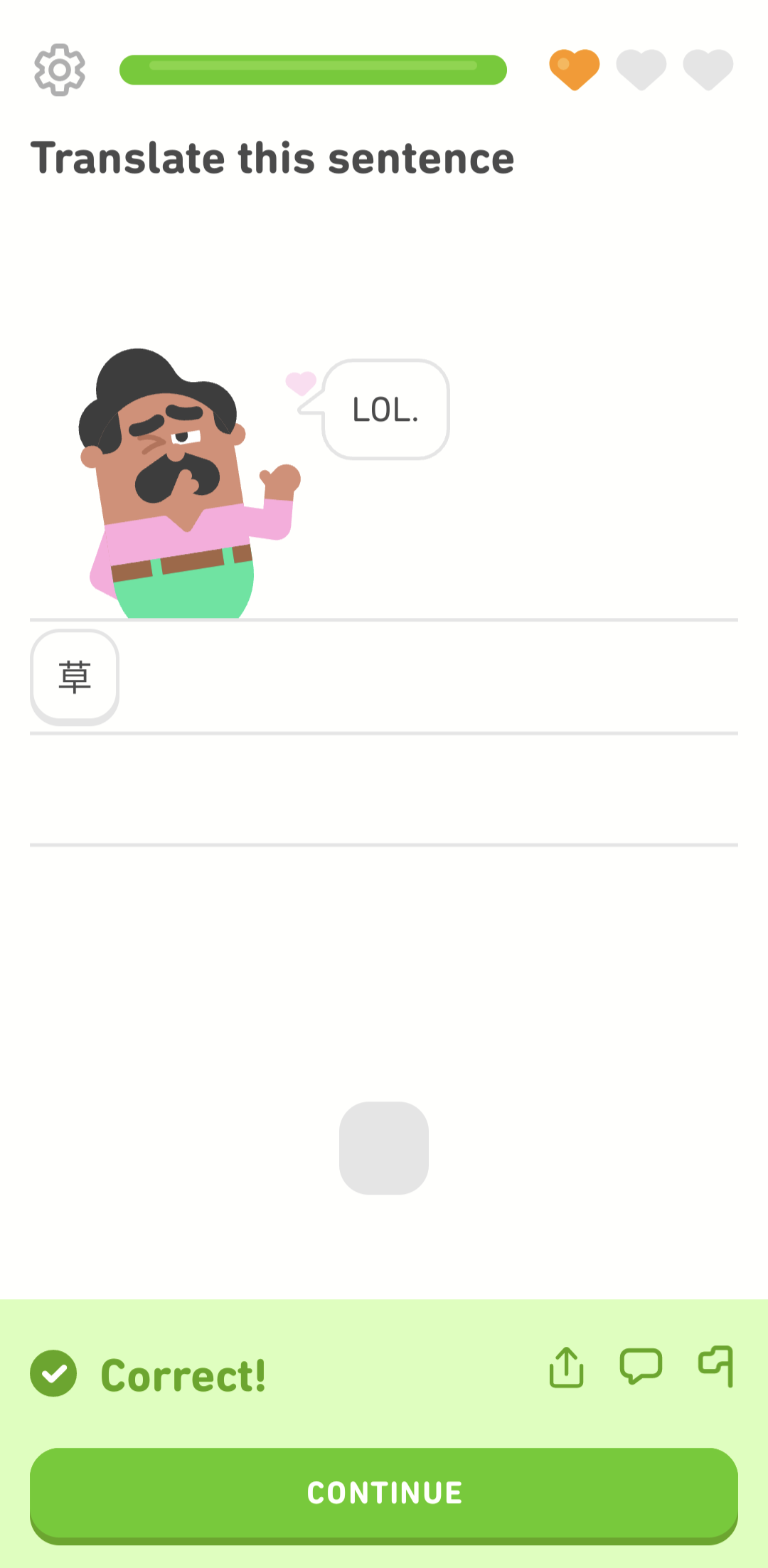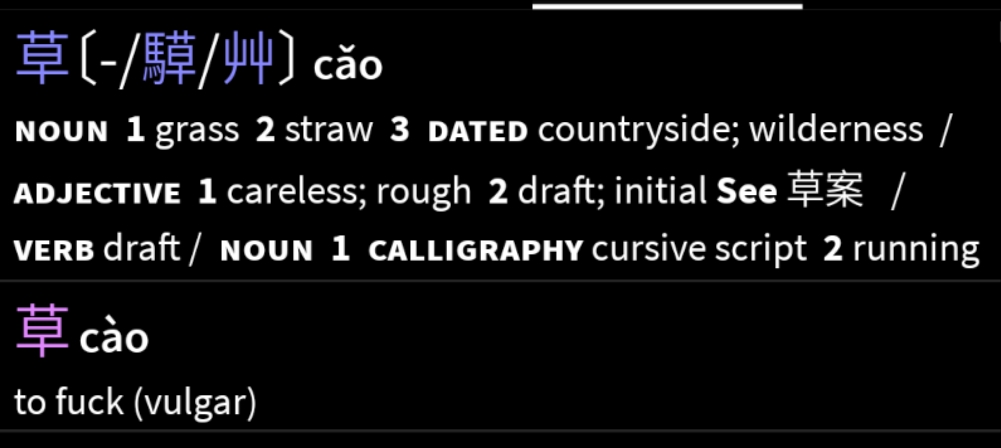this post was submitted on 05 Jul 2023
31 points (97.0% liked)
Japanese Language
1399 readers
1 users here now
ようこそJapaneseLanguageへ! 日本語に興味を持てば、どうぞ登録して勉強しましょう!日本語に関係するどのテーマ、質問でも大歓迎します。 This is a community dedicated to the Japanese language. Feel free to come in and ask questions or post your thoughts and opinions about this beautiful language.
Feel free to check out the web archive of r/LearnJapanese's resources if you're looking for more learning material or tools to aid you in your Japanese language journey!
—————————
Remember that you can add furigana to your posts by writing ~{KANJI|FURIGANA}~ like:
~{漢字|かんじ}~ which comes out as:
{漢字|かんじ}
founded 1 year ago
MODERATORS
you are viewing a single comment's thread
view the rest of the comments
view the rest of the comments

I don't understand Japanese but here are the meanings in Chinese. My guess is the second one used much more in daily written language
Ah, no, this is some Internet slang, and oddly enough it comes from the first meaning. AFAIK, the second one doesn't exist in Japanese.
~~Basically, "hahaha" in Katakana is written as ハハハ. If you line up enough ハハ's, it will look like a series of w's.~~ In chats, they use w (from 笑い、warai) to denote laughter. If you line up enough wwww's, it looks like grass. That's how 草 ended up meaning LOL.
Oh I had heard that w came from 笑い but yeah, it’s 草 because it looks like grass
Oh, apparently you're right! I just made a quick search. I was speaking based on what a Japanese friend had told me long ago, but maybe he had misunderstood it too.
Is that why Aqua in Konosuba says "kusukusukusu" when she laughs? Is it because "kusukusukusu" sounds like "kusakusakusa"? (「くさくさくさくさ」 or 「草草草」)
No, くすくす is onomatopoeia for giggling. https://jisho.org/word/%E3%81%8F%E3%81%99%E3%81%8F%E3%81%99